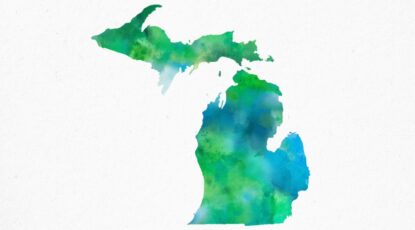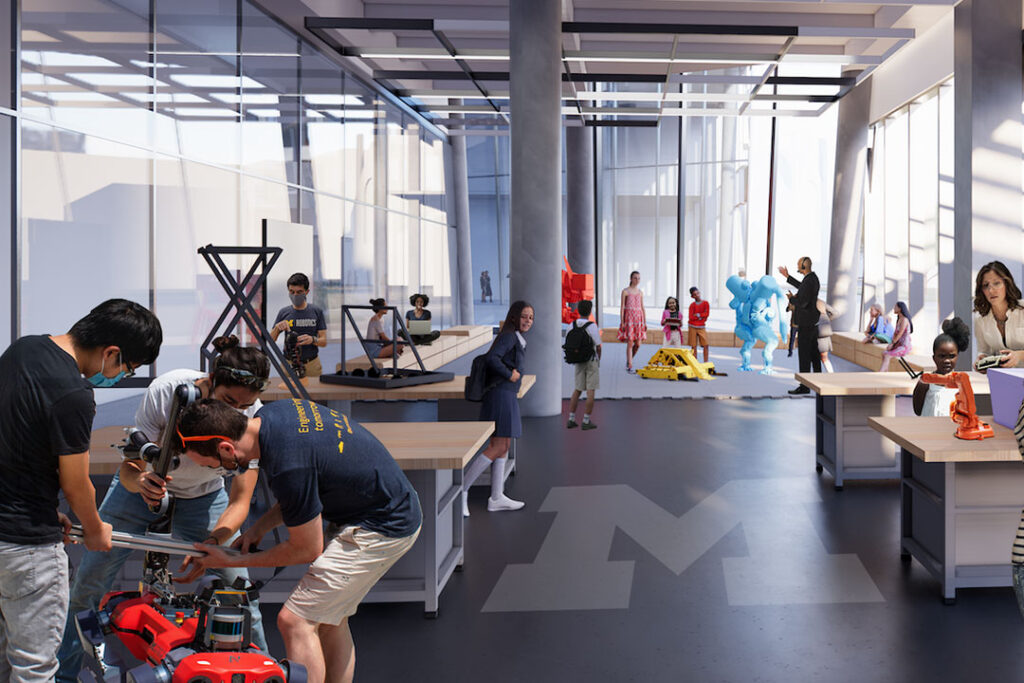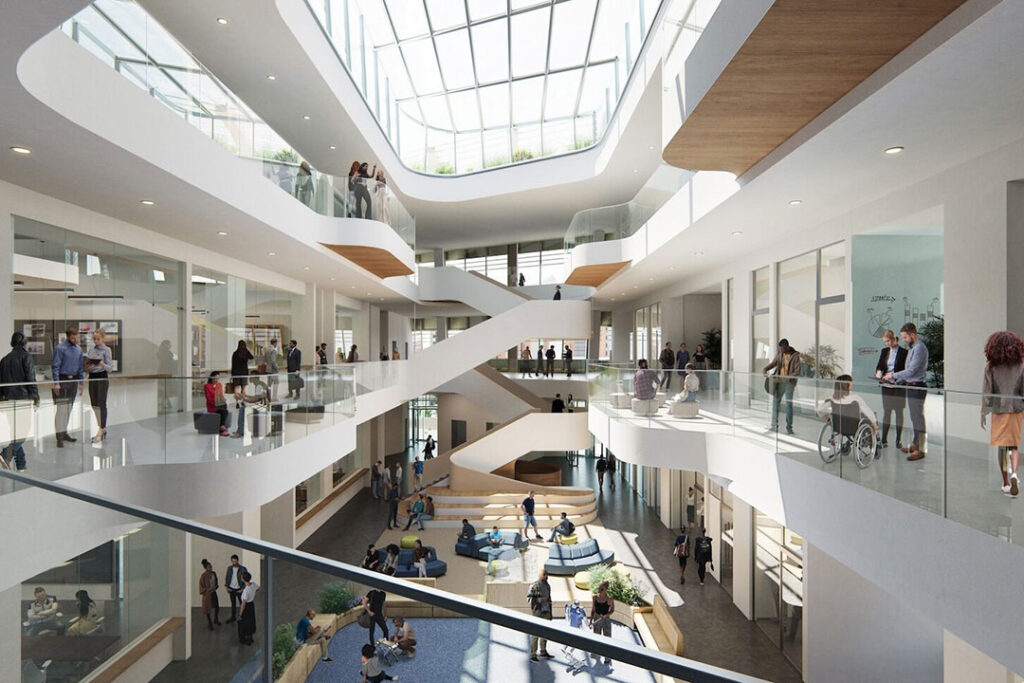Look to Michigan: The ‘defining public university of the future’

U-M’s blueprint for the next decade — Vision 2034 — leverages the community’s excellence at scale to confront the future’s most significant challenges, from AI and precision medicine to campus well-being and carbon neutrality.
-
Rolling the dice on addiction
College sports deliver some of the most thrilling moments in athletics. But it’s not all fun and games for gambling addicts whose fortunes rise and fall with each contest. Now, as online betting becomes more popular and accessible, college students are increasingly vulnerable to getting hooked, warn U-M experts.
-
‘On a scale of 1 to 5, are you….’
How do people feel about the president? The new laundry detergent? The state of the world? Prior to the Likert Scale and the founding of U-M’s Institute for Social Research, it was difficult to say. ISR’s legacy lives in every massive sample survey since Truman beat Dewey in 1948.
-
Volunteers needed for study: Learn how exposure to ‘forever chemicals’ impacts cancer risk
U-M investigators need your help to understand statewide environmental exposures and cancer risk. Researchers hope to recruit 100,000 Michiganders ages 18-49 from diverse racial and ethnic backgrounds, with a focus on residents in Metro Detroit, Flint, Grand Rapids, Kalamazoo, Lansing, and Saginaw.
-
Chemicals stored in home garages linked to ALS risk
Over the last decade, researchers at U-M have found exposure to environmental toxins — from pesticides used in agriculture to volatile organic compounds in the manufacturing industry — is linked to the development of amyotrophic lateral sclerosis, or ALS. The buildup of exposures is possibly associated with recreational activities such as woodworking and gardening.
-
Too much screen time? U-M pioneers digital wellness program for youths
Addiction, cyberbullying, eating disorders, anxiety, and other mental health issues caused by problematic digital practices and an increase in screen time are some of the themes of a new and unique U-M interprofessional Peer-to-Peer Digital Wellness class.
-
How trauma gets ‘under the skin’
U-M researchers have found that people who experienced greater childhood adversity, reporting one or more traumatic or adverse events, had poorer muscle metabolism later in life. The researchers say the effects of childhood adverse events remained significant even after they controlled for other factors that could potentially impact muscle function such as age, gender, educational attainment, and more.
Columns
-
President's Message
From this day forward: ‘Vision 2034’
U-M's focus for the decade will target key areas with the greatest potential for impact. -
Editor's Blog
Something old, something new
Who's ready for an excellent adventure? Just keep an eye peeled for the (virtual) hot lava. -
Climate Blue
Scenes from a warming climate
Ricky Rood reveals creative ways to gain control over the disruptions caused by climate change by planning for multiple scenarios. -
Health Yourself
It’s time to rethink food labels
Rising prices are not the only challenge consumers face in today's grocery aisle.
‘Gateway for innovation’
The University of Michigan Center for Innovation (UMCI) in Detroit is expected to open in spring 2027. The building broke ground in December and preliminary site work has been ongoing. “The UMCI is a catalyst for positive change and, as such, presents itself along Grand River Avenue as a ‘gateway for innovation,’” said Hana Kassem, FAIA, Design Principal, Kohn Pedersen Fox (KPF). The first two floors will house public programs, a cafe, and shared office space for the U-M Detroit Center, Admissions Office, School of Environment and Sustainability Clinic, and others. Levels three through six are planned for multidisciplinary graduate research. Watch: MCI design approved, construction ramps up. (All images by Kohn Pedersen Fox.)
















